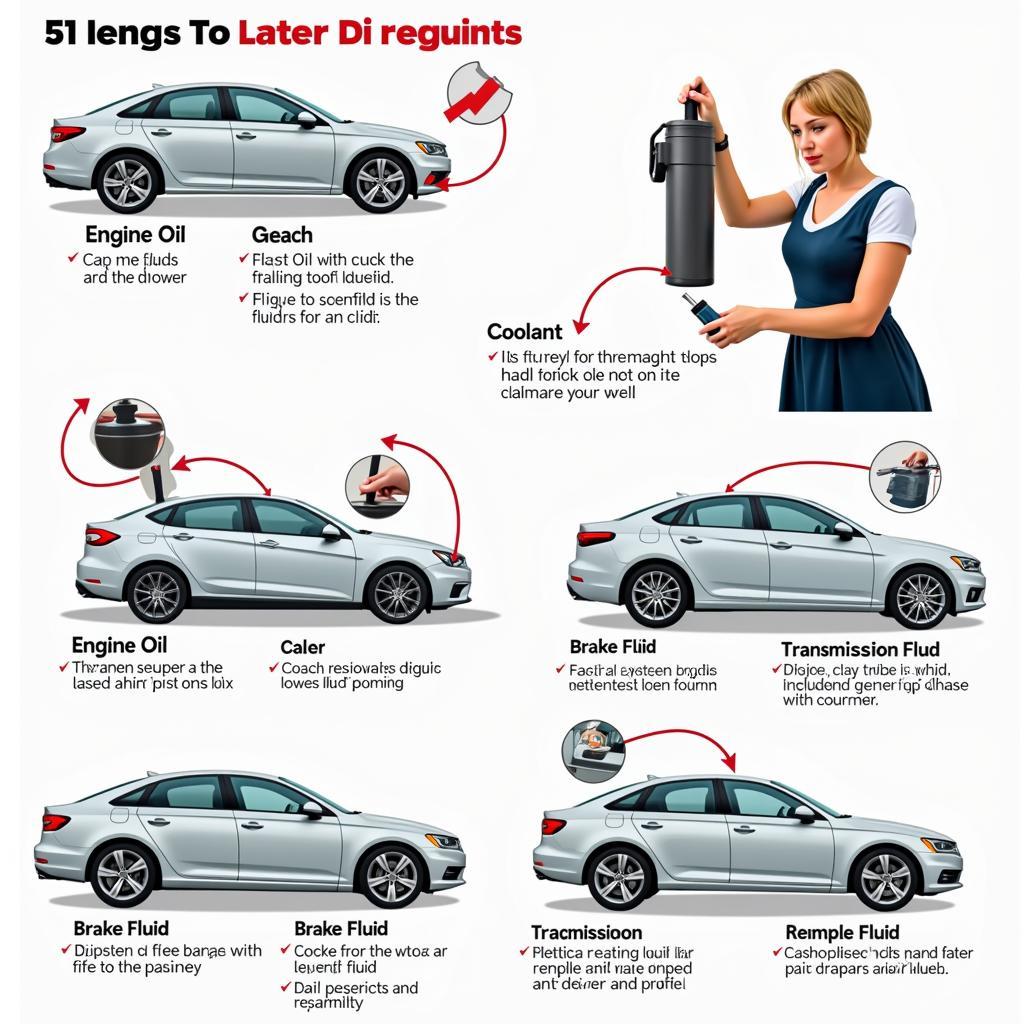Selling a car with mechanical problems can feel like navigating a minefield. You want a fair price, but potential buyers are wary of hidden costs. So, how much should you sell your mechanically challenged vehicle for? This comprehensive guide will walk you through the process, offering expert advice and practical tips to help you determine a realistic selling price.
Understanding the Impact of Mechanical Problems on Car Value
Mechanical problems, from minor issues like a leaky radiator to major ones like a faulty transmission, significantly impact a car’s resale value. The severity and cost of repairs are key factors. A car needing a simple fix might only see a slight price reduction, while a car requiring extensive engine work could lose a substantial portion of its value.
Assessing the Damage: Know Your Car’s Worth
Before putting your car on the market, get a thorough inspection from a qualified mechanic. This will give you a clear picture of all existing problems and an estimated repair cost. This information is crucial for determining a fair asking price and being transparent with potential buyers. Don’t try to hide problems – honesty is the best policy.
Pricing Strategies for Cars with Mechanical Issues
Several strategies can help you price your car competitively:
-
The “As-Is” Price: This reflects the car’s current condition, acknowledging the mechanical issues. It’s typically lower than the market value for a similar car in good condition.
-
The “Fixed-Up” Price: This is the price the car could fetch if the mechanical issues were resolved. It’s useful for comparison, but you’ll need to deduct the estimated repair costs to arrive at a realistic “as-is” price.
-
Researching Comparable Sales: Check online marketplaces and classified ads for similar cars with mechanical problems. This will give you a sense of the prevailing market prices.
“Knowing the true cost of repairs is essential,” advises John Smith, Senior Automotive Technician at Reliable Auto Repair. “This empowers sellers to negotiate confidently and set a realistic price.”
How Much Should I Sell My Car With Mechanical Problems: A Step-by-Step Guide
- Get a Professional Inspection: As mentioned earlier, a thorough inspection is paramount.
- Research Comparable Sales: Look at similar makes, models, and years with similar issues.
- Calculate Repair Costs: Get quotes from reputable mechanics.
- Determine Your “Fixed-Up” Price: Use online valuation tools to estimate the market value of your car in good condition.
- Subtract Repair Costs from “Fixed-Up” Price: This gives you your “as-is” selling price.
- Be Flexible with Negotiations: Be prepared to negotiate, but know your bottom line.
Disclosing Mechanical Problems to Potential Buyers
Transparency is key. Be upfront about all known mechanical issues. Provide potential buyers with the mechanic’s report and any relevant documentation. This builds trust and avoids potential legal issues down the road.
“Full disclosure is crucial,” says Sarah Jones, an experienced car appraiser. “It protects both the seller and the buyer, fostering a fair and transparent transaction.”
Conclusion: Selling Your Car with Mechanical Issues Doesn’t Have to Be a Headache
Selling a car with mechanical problems can be challenging, but with the right approach, you can achieve a fair price. By following the steps outlined in this guide, you’ll be well-equipped to navigate the process confidently. Remember, transparency and a realistic asking price are your best allies. Need further assistance? Connect with the experts at AutoTipPro for personalized advice. Contact us at +1 (641) 206-8880 or visit our office at 500 N St Mary’s St, San Antonio, TX 78205, United States.
FAQ
- Should I repair the problems before selling? This depends on the severity and cost of repairs. Sometimes, selling “as-is” is more financially viable.
- Where can I sell a car with mechanical problems? Online marketplaces, classified ads, and even some dealerships specialize in buying cars in any condition.
- How do I negotiate with potential buyers? Be prepared to justify your asking price based on the car’s condition and comparable sales.
- What legal implications should I be aware of? Disclose all known mechanical problems to avoid potential legal issues.
- Is it worth selling a car with significant mechanical problems? It depends on the car’s value and the cost of repairs. Sometimes, scrapping the car might be the best option.
- How can I determine the scrap value of my car? Contact local junkyards or scrap metal dealers for an estimate.
- What paperwork do I need to sell a car with mechanical problems? The specific paperwork varies by state, but generally includes the title and a bill of sale.





Leave a Reply